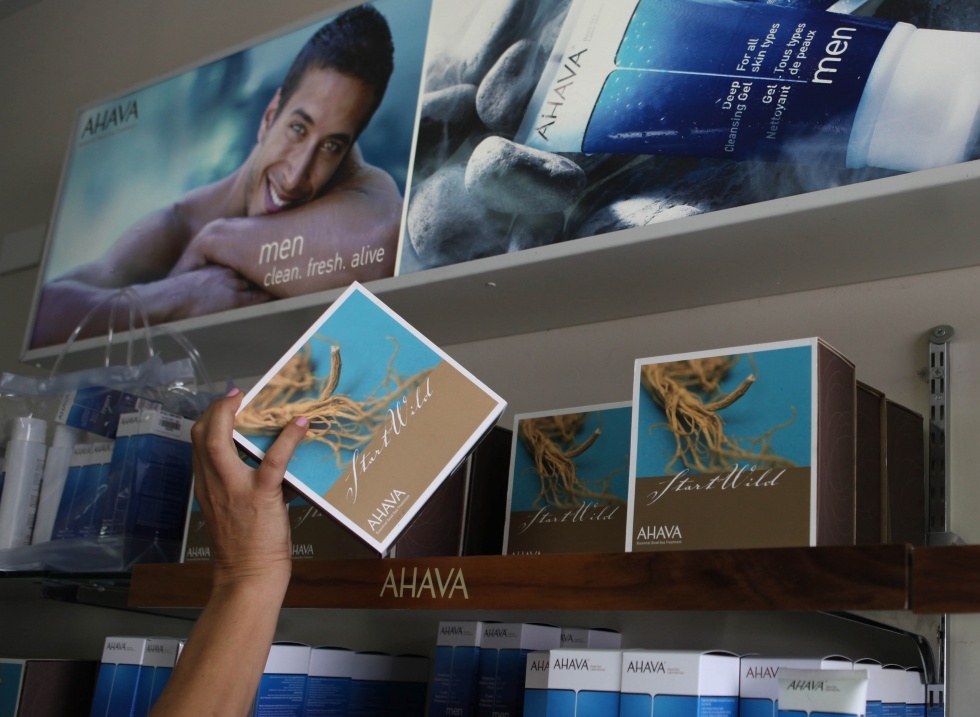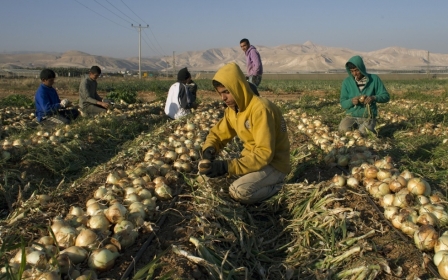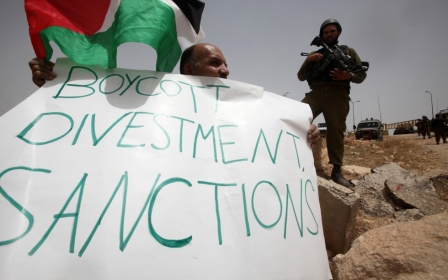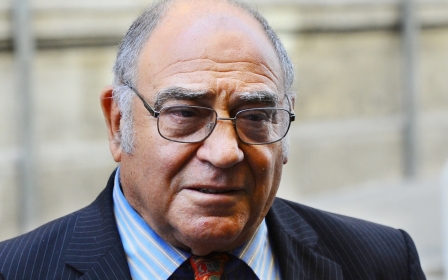EU urged to label produce from Israeli settlements in West Bank

Sixteen out of the 28 EU countries want the bloc to label products from Israeli settlements in the occupied West Bank, diplomatic sources told AFP Thursday, confirming a Haaretz report.
The plan was first mooted in 2012, angering Israel, but the 16 member states told EU foreign affairs head Federica Mogherini it was now time to press ahead as part of efforts to realise a two-state peace deal.
The 16 include Britain, France, Spain and Italy but not Germany.
"We would welcome you taking the lead in the (European) Commission in order to complete this important work on labelling settlement produce/products," the foreign ministers said in the letter, reproduced by the Israeli newspaper Haaretz.
Continued Israeli settlement building "threatens the prospect of a just and final peace agreement," they wrote, adding that labelling would make it clear to consumers what they were buying as endorsed by EU leaders at a summit in 2012.
Israel has blasted the move, seeing it as part of efforts to isolate the country, and has been critical of Mogherini who visited Israel and the Palestinian territories in December.
The EU has consistently condemned Israeli settlement building as a threat to the Middle East peace process through eroding the basis for a future Palestinian state.
"We cannot accept that produce from the settlements in occupied territory be freely traded," one EU diplomatic source said.
"The letter shows Europe's determination to put into effect what was agreed in 2012," said the source, who asked not to be named.
The foreign ministers' letter said labelling "is an important step in the full implementation of EU longstanding policy, in relation to the preservation of the two-state solution."
The letter was signed by Austrian Foreign Minister Sebastian Kurz and drafted, according to Haaretz, by his Belgian counterpart Didier Reynders who also signed it.
Sweden, Malta, Ireland, Portugal, Slovenia, Croatia, Finland, Denmark, The Netherlands and Luxembourg were the other signatories.
Mogherini's office declined to comment immediately and said they were checking the report.
Middle East Eye propose une couverture et une analyse indépendantes et incomparables du Moyen-Orient, de l’Afrique du Nord et d’autres régions du monde. Pour en savoir plus sur la reprise de ce contenu et les frais qui s’appliquent, veuillez remplir ce formulaire [en anglais]. Pour en savoir plus sur MEE, cliquez ici [en anglais].




